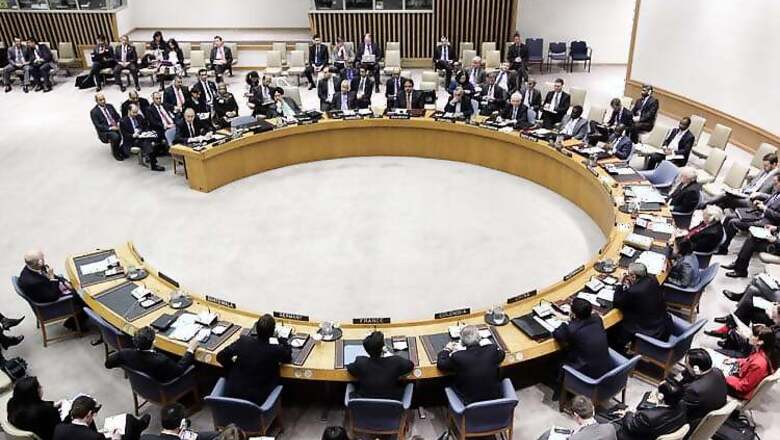
views
United Nations: Making a strong pitch for urgent reform of an "ineffective" Security Council, India has said the UN body's "malfunctioning" has affected over 60 million people and resulted in huge human and economic costs in terms of wars and conflicts.
"We note that that an ineffective Security Council has meant huge human, economic and environmental costs in terms of wars and conflicts, which the international community cannot justify," India's Permanent Representative to the UN Ambassador Asoke Mukerji said here yesterday.
"The figures speak for themselves, especially the single biggest statistic of more than 60 million people affected by the malfunctioning of the Security Council," he said during the General Debate of the General Assembly on 'Question of equitable representation and increase in the membership of the Security Council'.
Mukerji emphasised that the international community's work on UNSC reform cannot be seen in "isolation" as some kind of academic exercise which has no relation to the world. "The very fact that our leaders, unanimously, adopted the most ambitious Agenda 2030 to eradicate poverty from the face of the earth within one generation gives our work a context and framework.
"The longer we delay in reforming the Security Council, the more pressure we put on the successful implementation of Agenda 2030, especially for developing countries," he said. The debate was convened by UN General Assembly President Mogens Lykketoft days ahead of the commencement of the next round of Inter-Governmental Negotiations (IGN) under a new chair -- Luxembourg's envoy to the UN Sylvie Lucas.
This will be the first round of IGN talks after the UNGA had adopted last month by consensus a negotiating text that would form the basis of further talks on the reform process. India's candidature as a permanent member of a reformed and expanded Security Council was supported by permanent member the UK as well as by France.
In the debate yesterday, Pakistan opposed creation of new permanent seats and said the body instead needed expansion in the category of elected seats given the increase in the UN's membership since the Council was last expanded five decades ago.
"A few countries have sought to promote their self-arrogated right to a privileged and unequal status. And they have maintained this rigid position since the process began about two decades ago," Pakistan's envoy to the UN Maleeha Lodhi said in her remarks.

















Comments
0 comment